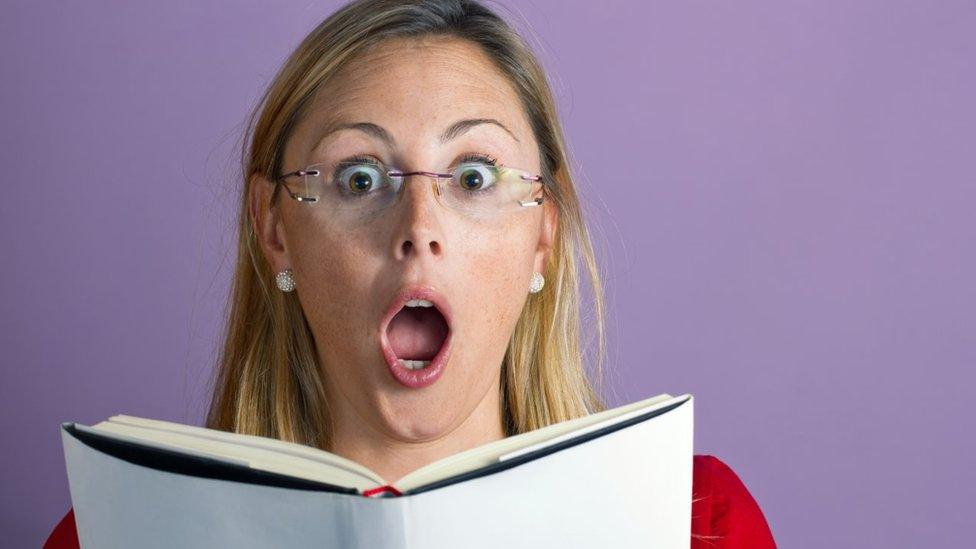Call for action on UK's screenwriter gender inequality
- Published
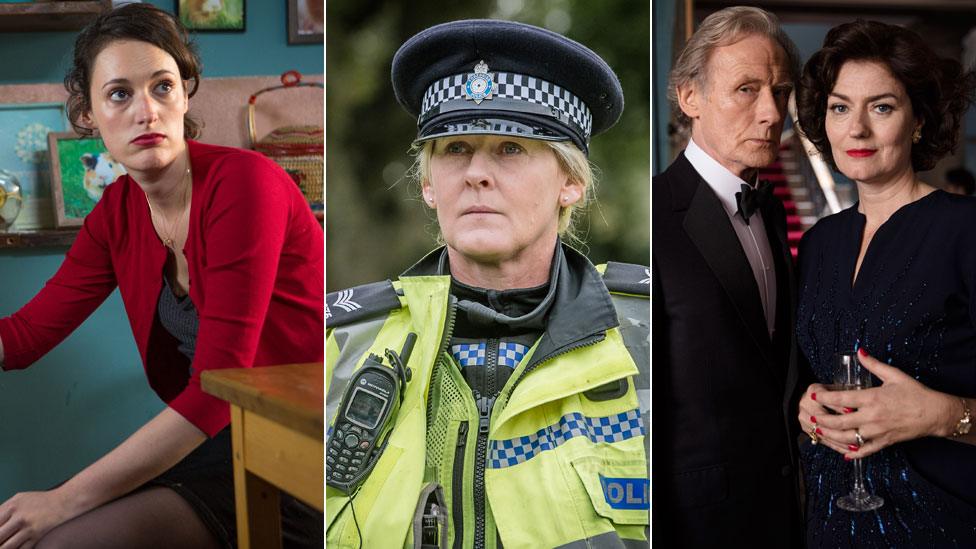
Fleabag, Happy Valley and Ordeal By Innocence are among the few TV shows to be written by women
The number of female writers working for film and television in the UK has not improved in the last 10 years, a new report suggests.
Across the whole industry, just one in six screenwriters is a woman.
Only one in 10 feature films is written chiefly by a woman, the figure dropping even lower for those with a budget greater than £10m - to just one in 14.
The Writers' Guild of Great Britain, which commissioned the report, is calling for change in the industry.
Screenwriter Gwyneth Hughes, behind ITV mini-series Dark Angel and the forthcoming Vanity Fair, said the research made for "shocking reading", calling for "an honest and open debate about why this inequality still afflicts our industry".

ITV's forthcoming Vanity Fair stars Olivia Cooke and Tom Bateman
The report from the trade union, which represents professional writers, looked at the period from 2005 to 2016.
It showed the situation had not improved over that time, with little increase in the number of female writers.
In 2006, 21% of UK feature films had at least one female writer credited among the writing team. In 2016, the figure stood at 22%.
The picture is a little better in television with 28% of all UK TV episodes being predominantly written by women, but this figure halves for women writing for prime-time television.
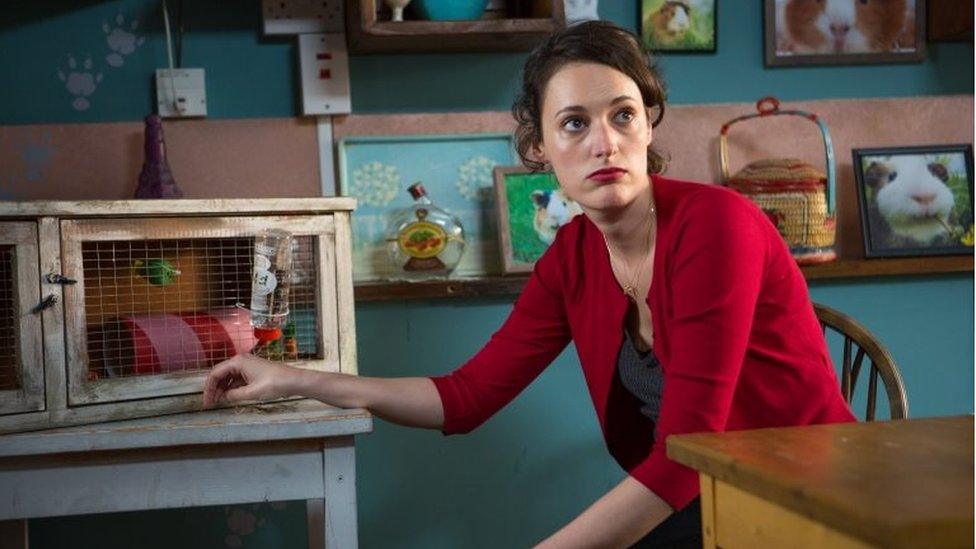
Fleabag is among just one in 10 comedy programmes to be written by a woman
Female representation in comedy and light entertainment appeared particularly low with just 11% and 9% respectively being predominantly female-written, according to the report.
It comes after a group of 76 TV drama writers signed an open letter of protest to UK broadcasters earlier this year when ITV revealed that its drama slate for 2018 had only one female writer out of nine.
Of more than 200 working writers polled, the new report indicates that only one in 20 agreed that "the way writers are hired, and scripts are commissioned, is fair and free from discrimination" - and the majority of respondents suggested that they had seen evidence of discrimination over the course of their careers.
The low numbers of female writers working in top dramas comes despite some of the most popular recent TV shows being written by women including Happy Valley (Sally Wainwright), Ordeal by Innocence (Sarah Phelps) and Girlfriends (Kay Mellor).
The report also looked at the budgets of feature films compared to UK and international box office takings and found films written by women have higher revenues - both domestically and globally - than those written predominantly by men.
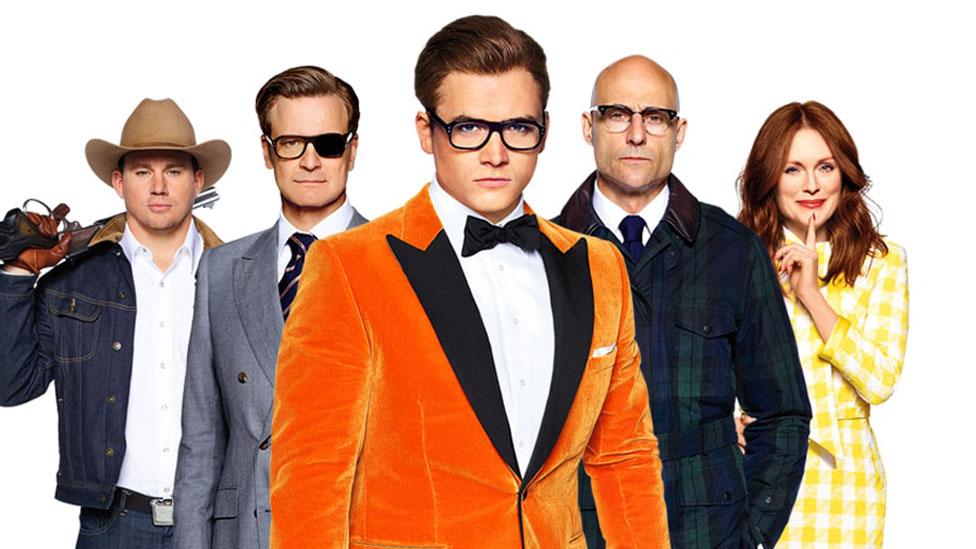
The Kingsman series is written by Jane Goldman
WGGB president Olivia Hetreed called on commissioners and public funders to work harder to give equal opportunities to women writers.
Hetreed, who is also a Bafta-nominated writer for her adaptation of Girl with a Pearl Earring, said: "I have been asked about the dearth of female screenwriters in this country ever since my first feature film put me into that endangered species bracket.
"I and others were reassuring: 'It's just a matter of time. It's getting better. It will work itself out'. But more than a decade later, this new research shows that the number of women writing films has flat-lined at abjectly low levels."
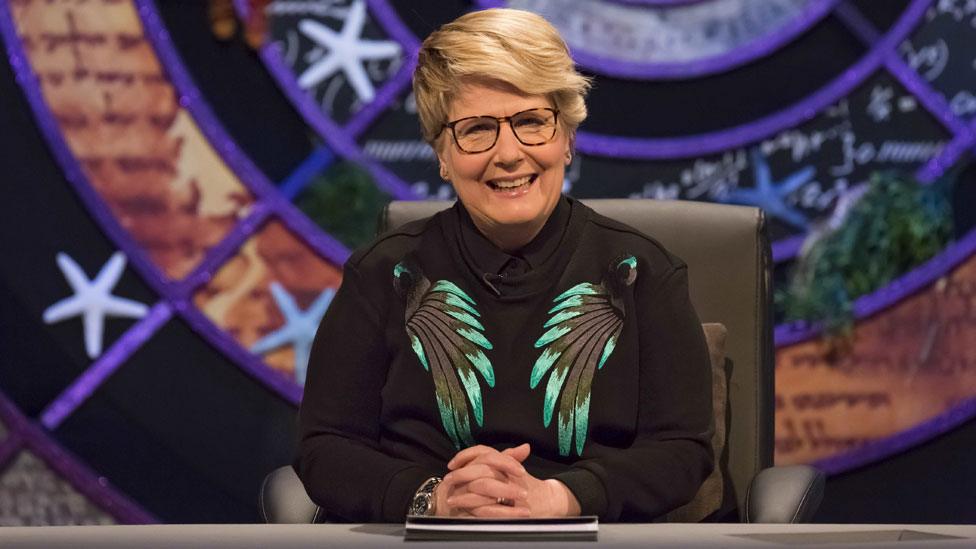
As well as a presenter, Sandi Toksvig is also a writer - with more than 20 books to her name
Writer and presenter Sandi Toksvig is also among those to give her support to the campaign, saying: "There is no shortage of talented women writers in the UK, and therefore no excuse that so few of them are getting commissions in film and TV."
Screenwriter Kay Mellor said: "It's criminal that I can count on one hand how many women signature writers there are on TV right now. Sometimes it takes a collective to say - 'this is not fair' and it's not. It's time things changed."
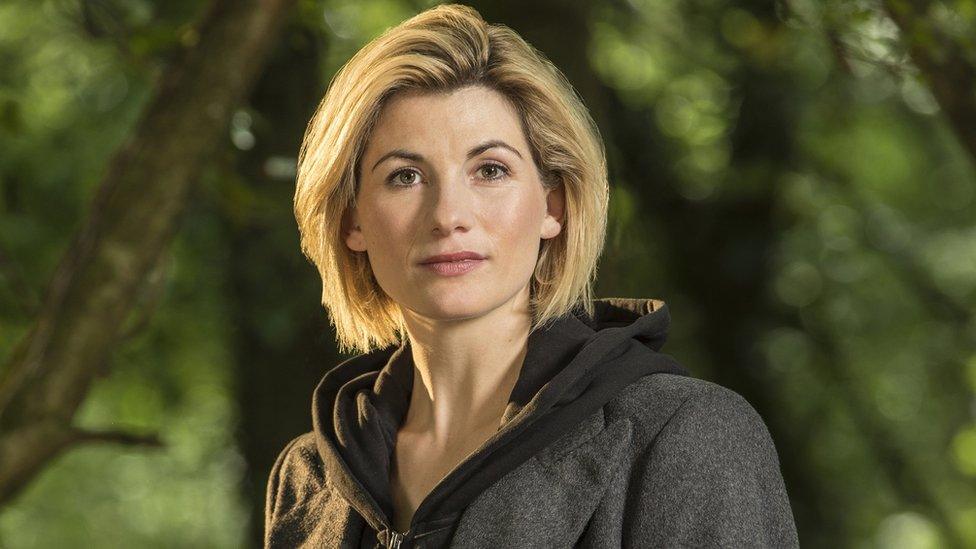
The BBC said there would be more female writers in the new series of Doctor Who
The BBC has previously come under criticism for five of the most recent series of Doctor Who being entirely written by men, external.
In response, BBC One's head of drama Piers Wenger said "a number" of the scripts for Chris Chibnall's forthcoming debut series of Doctor Who had been written by women.
He also added that "women have written more than 40% of the drama" he had ordered since taking up his post at the BBC a year ago.
ITV's head of drama Polly Hill said: "As we look to offer audiences the greatest range of drama, we will always support and commission female writers and take representation on and off-screen seriously."

Follow us on Facebook, external, on Twitter @BBCNewsEnts, external, or on Instagram at bbcnewsents, external. If you have a story suggestion email entertainment.news@bbc.co.uk.
- Published28 February 2018
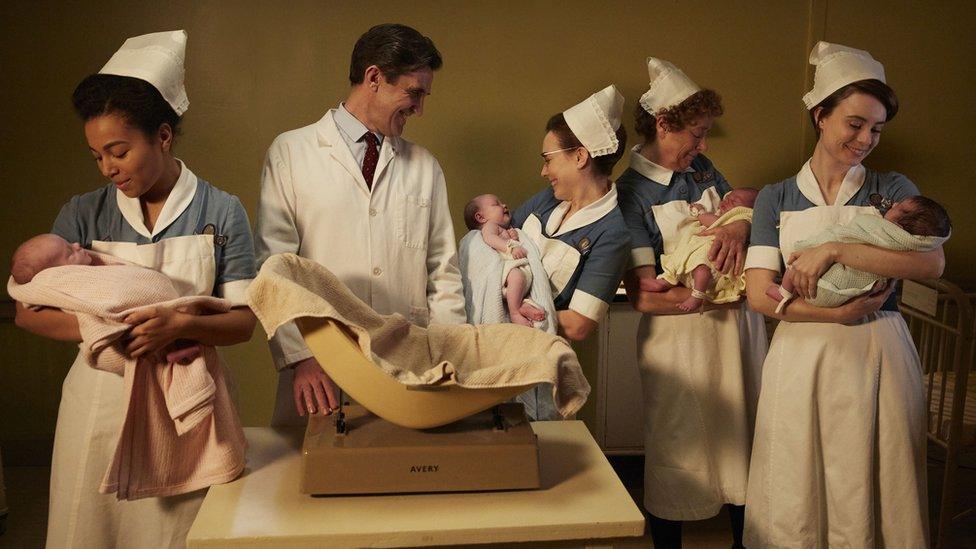
- Published4 April 2018
